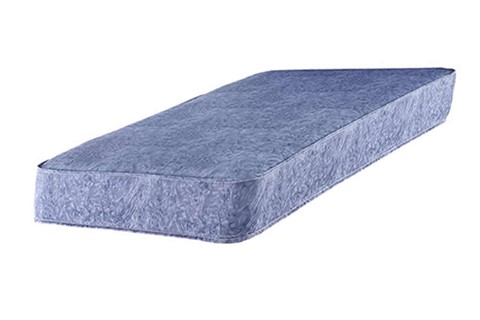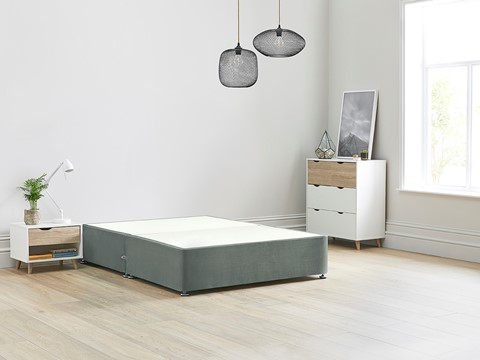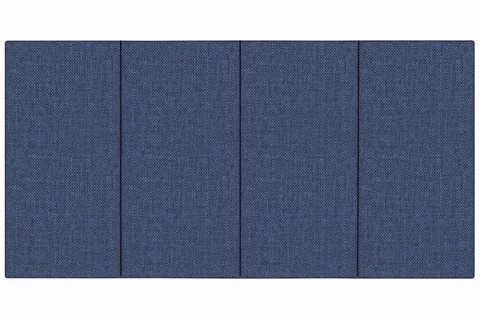Mattress Fillings
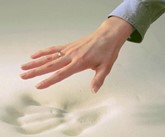
Mattresses come with a range of different fillings, often determining quality (and price).
Memory Foam
Memory foam (also known as viscoelastic polyurethane foam) is known to mould to a person’s body within a few minutes. High-density memory foam softens in reaction to body heat while lower-density memory foam reacts to pressure.
Memory foam helps maintain a correct posture while sleeping while lying on your side by allowing your spine to stay horizontal. You will ‘sink’ into the memory foam which can limit the amount of air circulation between your body and the mattress.
Reflex Foam
Reflex foam is often used as a cheaper alternative to memory foam. It is a high-density foam, filled with bubbles which act in a similar way to a water balloon - the air displaces 'sideways' when pressure is applied. Once that pressure is relieved, the bubbles spring back into shape and the mattress regains its shape.
Latex Foam
The latex mattress is all natural, made from white liquid, secreted from rubber trees. This is then blended with synthetic latex and turned into latex foam.
Latex is very breathable, so there shouldn’t be a problem of overheating during the night which can disrupt your sleep. It is also extremely durable which will prolong the life of the mattress.
These mattresses can be heavy, so if turning a latex mattress might be problematic for you, it might be best to choose a lighter option.
One of the great benefits from a latex mattress is that it doesn’t harbour dust mites which are perfect for people that suffer from allergies and asthma.
Wool
Wool works in harmony with the bodies temperature to keep you warm and comfortable, which is why it’s a popular natural filling.
With dust mites as a major concern for people who suffer from allergies and asthma, a wool filling is a perfect choice due to it being hypoallergenic.
Not only is wool hypoallergenic, but it's also fire resistant. Wool filled mattresses help meet fire regulations as wool smoulders and extinguishes itself when exposed to fire.
Mattress Covering Material
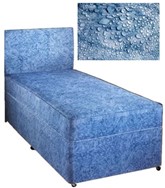
Cotton
Soft, durable, strong and versatile. Cotton can be used for many aspects of a bedroom including the mattress, pillows, toppers and sheets. Cotton’s main strengths is that its extremely breathable and takes moisture away from the body. With this combination, sleep is rarely interrupted.
PVC
A mattress covered with PVC offers excellent value, being a durable waterproof solution. A PVC mattress is easy to care for with a simple wipe down.
Damask
Damask designs originate from Damascus, Syria. Damask is a high quality woven fabric, with better grades of the fabric harbouring high cotton content.
Nautilus
The nautilus fabric boasts waterproof qualities while still being extremely breathable and is popular among many nursing care homes and student accommodation.
Bed Frame Materials
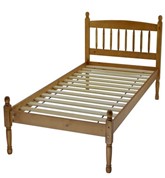
The material of your bed frame can completely change the look and feel of a bedroom. Whether you need a strong, sturdy and safe bed frame or something that embodies a rustic country cottage charm, there is something for you.
Wood
Wooden bed frames offer a versatile and timeless choice for a bedroom. With many different types of wood used in bed construction, whether you’re looking for a traditional or contemporary look, you'll find what you're looking for.
Metal
Metal bed frames offer fantastic durability and a contemporary stylish look. Though not typically classed as parts of a bed frame, headboards, footboards and bed rails can be included in the definition. Beds can be constructed from a variety of metals.
Leather
High-quality faux leather is very durable and easy to clean while offering a modern look and feel to your bedroom.
Regulations
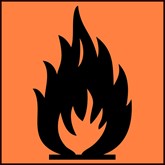
The materials used for contract beds need to be properly regulated to meet specific requirements. This includes both the mattress and bed frame. Contract beds are more than fit for use in a domestic setting as the safety standards for contract furniture supersede the standards required for furniture used in a non-commercial environment. See the regulations page for more information.
Headboards
A headboard is a piece of furniture that attaches to the head of the bed. Headboards are often complemented by a footboard for aesthetic balance. Traditionally, headboards served to prevent drafts from getting to sleepers. In the modern-day, they are used to be aesthetically pleasing. They also may offer functional conveniences such as storage. See the headboards page for more information.

